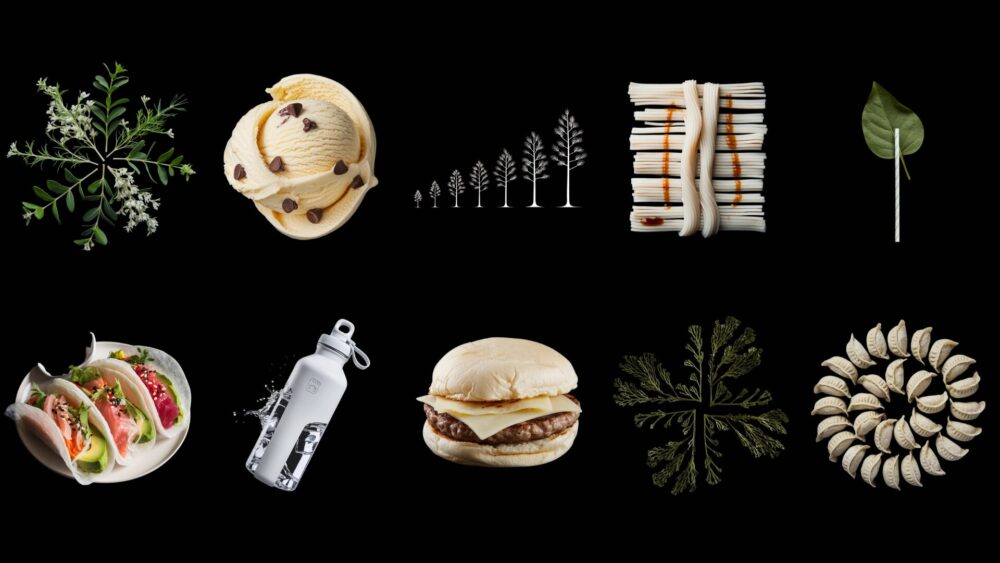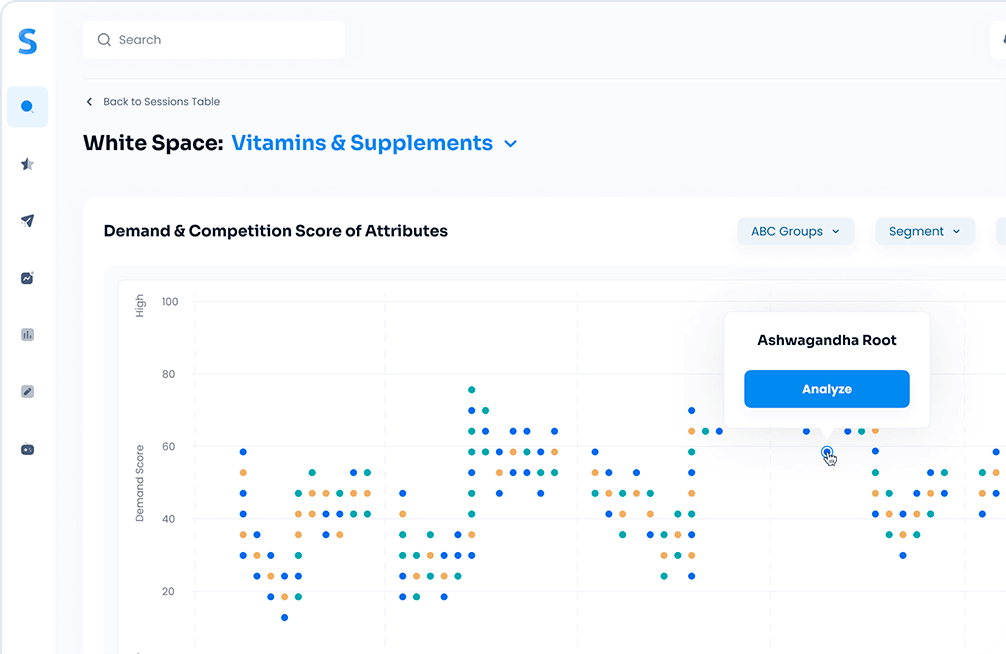The vitamin and supplement industry is constantly changing, with some vitamins becoming popular while others decline in popularity. So, we decided to look at over 15.4 million data points about vitamins ranging from search, social, and review data to predict what will be gaining and losing momentum in 2023.
Thumbing through 2023 themes
The graphic below breaks down the ten vitamin themes we believe possess the lowest potential for growth in 2023. Theme opportunity scores are determined by looking at both share of voice (a leading indicator of market share) and year-over-year growth rate.
To help brands better understand the needs of their consumers, we’ve leveraged our White Space AI tool to analyze 46 vitamin themes to forecast what will and won’t be trending in 2023.
Kosher

Kosher supplements are those that have been prepared in accordance with Jewish dietary laws. This category is expected to grow rapidly at 31.89 percent in 2023 despite holding a small share of the overall vitamin market (0.04 percent), with niche websites like KosherVitamins.com leading the way.
The Kosher product label is not only attractive to those who keep kosher but also to those who are looking for high-quality, pure products. So, if your brand offers — or plans to offer — kosher vitamins and supplements, make sure to call it out on your product packaging and marketing materials.
Gelatin Free
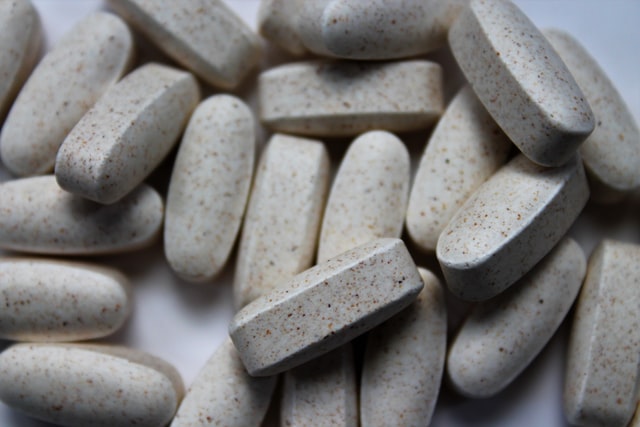
Gelatin (0.03 percent share of voice) is a common ingredient in many supplements, but there is a small but growing segment of consumers who are looking for gelatin-free options. Gelatin is an animal-based product, so those who live a vegan lifestyle will lean heavily into gelatin-free supplements and vitamins. Our team predicts this theme will see moderate growth in 2023 at 10.78 percent, with products like Sea Moss Vitamin C gummies performing well.
So, the next time you’re in the vitamins and supplements section, watch gelatin-free promoted products. And, if you’re a brand looking to stay ahead of the curve, consider formulating products that cater to this trend.
Sugar Free
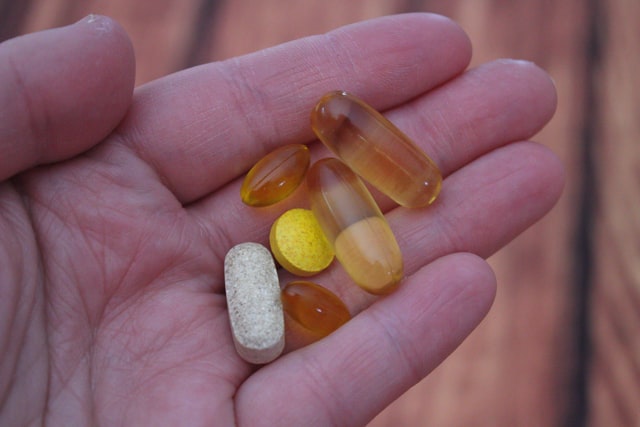
With sugar dominating the headlines as public enemy number one, it’s no surprise that sugar-free vitamins are rising. Although this category only accounts for 0.14 percent of the total market, it’s expected to gain traction in 2023 with a 7.95 percent expected growth rate. Products like this Sugar Free energy supplement gummy will perform well in 2023 while sugar-filled counterparts struggle to maintain their market share.
Gluten Free
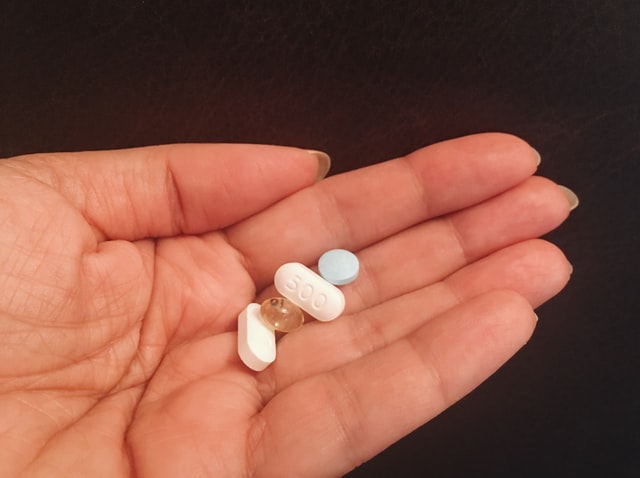
The Gluten Free movement has been gaining steam in recent years, and it doesn’t seem to be slowing down anytime soon. In 2023, the Gluten Free market (0.25 percent share of voice) is expected to grow 6.62 percent, according to our White Space AI tool.
The trend has been driven by people seeking out gluten-free products for health reasons and those who simply want to avoid the protein. There are several reasons why people might be avoiding gluten, including celiac disease, non-celiac gluten sensitivity, and wheat allergies. Whatever the reason, it’s clear that the demand for gluten-free products is on the rise, so don’t sleep on this opportunity.
Dairy Free
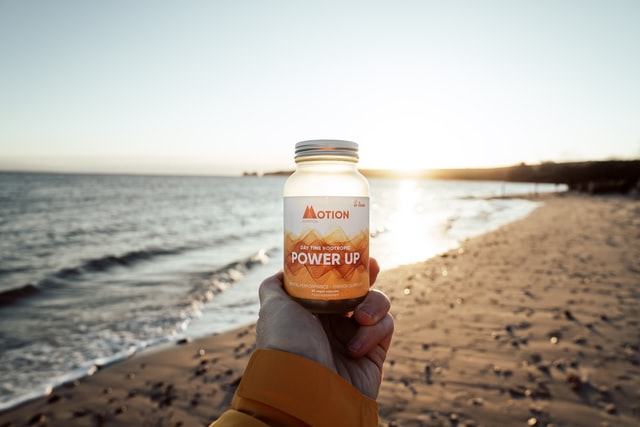
With a tiny 3.24 percent predicted growth trajectory for 2023, Dairy Free (0.05 percent share of voice) vitamins and supplements don’t seem to be shaking up the industry anytime soon. Dairy Free doesn’t appear to be high on consumers’ list of priorities regarding their supplement routines, likely because very few supplements are dairy-based. So, the Vitamin Shoppe offers Dairy Free supplements like these to account for those looking for these types of options.
Plant Based
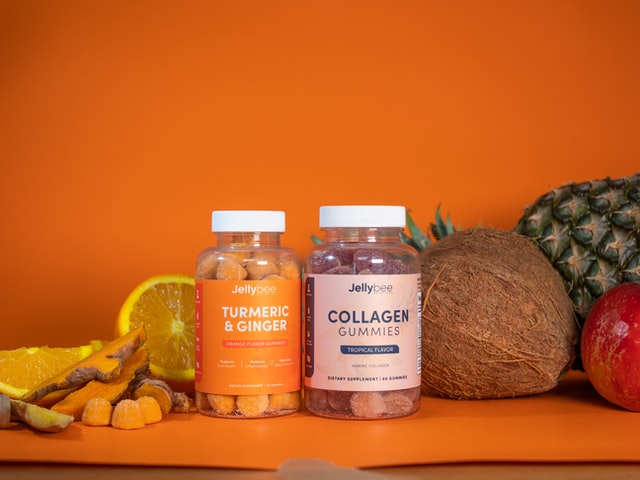
Anything and everything Plant Based has been having a moment for the past few years, and vitamins are no exception. Although this category only accounts for 0.12 percent of the total market, it’s expected to grow slightly in 2023 (1.32 percent growth outlook).
But, what’s driving this growth?
Primarily, there’s an increasing interest in plant-based diets as more and more people look to reduce their carbon footprint and improve overall health. This has led to a boom in plant-based vitamins like this Vitamin D supplement from Ora, as consumers seek products that align with their ethical and environmental values.
Organic

Organic (1.42 percent share of voice, one of the largest on our list) has been a leading label for vitamins for some time, as consumers feel good about supporting products free of pesticides and other harmful chemicals. Without looking too hard, you’ll find tons of Organic products on supplement shelves in retail stores worldwide.
However, growth in the Organic vitamin category is expected to be pretty flat in 2023, at just 0.33 percent. This is likely because organic products are often more expensive than their conventional counterparts, and many consumers are looking for ways to save money as the economy continues to remain volatile. Therefore, products like this Organic Vitamin E supplement may not perform exceptionally well in 2023.
Keto

Keto (0.25 percent share of voice) vitamins and supplement products are anticipated to have a declining year in 2023, with an expected negative 18.85 percent growth rate next year. This is despite the keto diet’s increasing popularity, as people are becoming more aware of the dangers or risks of using keto products. Consumers realize that just because something is labeled as Keto doesn’t mean it’s a good option for their particular health situation.
Make sure your product development lineup for 2023 doesn’t focus on keto products, or you may find yourself with a lot of unsold inventory.
Soy Free

With a negative 28.11 predicted growth outlook for 2023, Soy Free products like these multivitamins for women will lose year-over-year momentum. In addition, Soy Free products only have a 0.03 percent share of voice, which is very small relative to other categories. Products that are soy-free have been on the decline in recent years as consumers become more aware of the potential health risks associated with soy.
Paleo

Paleo-friendly vitamins include vitamins A, D, E, and K2, which are found in animal products like eggs and liver and in leafy greens. This category is expected to decline in popularity in 2023 as consumers abandon fad diets and lifestyles. Brands focusing on this theme in 2023 will likely decline in sales and market share.
Conclusion & Key Takeaways
There are a lot of movers and shakers in the vitamin care theme landscape for next year. Some of the biggest winners? Kosher, Gelatin Free, and Sugar Free vitamins are all expected to grow significantly in 2023.
On the flip side, some of the biggest losers are Keto, Paleo, and Soy Free vitamins, which are all expected to decline significantly. Regarding market share, Organic and Plant Based vitamins are the clear leaders, while Dairy Free and Sugar Free products have a lot of room to grow.
Keep these trends in mind as you develop your product lineup for 2023. And, if you’re looking to get ahead of the curve, consider investing in some up-and-coming themes like Kosher, Gelatin Free, and Sugar Free.
Thanks for reading! We hope this was helpful. For more on 2023 Vitamin and supplement predicted performance, check out our blog.
If you’re ready to see Simporter AI in action and learn what it can do for you, request a demo on our website for more insights on Household Care Stain Removal trends. Predicting need state trends is just one way Simporter can help brands grow their business, so to learn more about how we can help you, please visit us at simporter.com.

